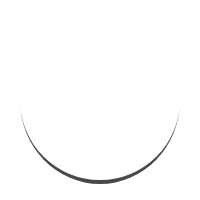Abstract
Free full text

Full text links
Read article at publisher's site: https://doi.org/10.1093/genetics/78.4.1101
Read article for free, from open access legal sources, via Unpaywall:
https://academic.oup.com/genetics/article-pdf/78/4/1101/34394320/genetics1101.pdf
Subscription required at intl.genetics.org
http://intl.genetics.org/cgi/reprint/78/4/1101.pdf
Free to read at intl.genetics.org
http://intl.genetics.org/cgi/content/abstract/78/4/1101
Citations & impact
Impact metrics
Citations of article over time
Smart citations by scite.ai
Explore citation contexts and check if this article has been
supported or disputed.
https://scite.ai/reports/10.1093/genetics/78.4.1101
Article citations
Fission yeast Srr1 and Skb1 promote isochromosome formation at the centromere.
Commun Biol, 6(1):551, 26 May 2023
Cited by: 1 article | PMID: 37237082 | PMCID: PMC10219947
Post-Translational Modifications of PCNA: Guiding for the Best DNA Damage Tolerance Choice.
J Fungi (Basel), 8(6):621, 10 Jun 2022
Cited by: 7 articles | PMID: 35736104 | PMCID: PMC9225081
Review Free full text in Europe PMC
DNA replication machinery prevents Rad52-dependent single-strand annealing that leads to gross chromosomal rearrangements at centromeres.
Commun Biol, 3(1):202, 30 Apr 2020
Cited by: 10 articles | PMID: 32355220 | PMCID: PMC7193609
Identification of SUMO modification sites in the base excision repair protein, Ntg1.
DNA Repair (Amst), 48:51-62, 31 Oct 2016
Cited by: 7 articles | PMID: 27839712 | PMCID: PMC5133457
New insights to the ubiquitin-proteasome pathway (UPP) mechanism during spermatogenesis.
Mol Biol Rep, 40(4):3213-3230, 26 Dec 2012
Cited by: 45 articles | PMID: 23268313
Review
Go to all (87) article citations
Data
Similar Articles
To arrive at the top five similar articles we use a word-weighted algorithm to compare words from the Title and Abstract of each citation.
Comparative analysis of deletion and base-change mutabilities of Escherichia coli B strains differing in DNA repair capacity (wild-type, uvrA-, polA-, recA-) by various mutagens.
Mutat Res, 27(1):27-44, 01 Jan 1975
Cited by: 84 articles | PMID: 164624
Effect of Genes Controlling Radiation Sensitivity on Chemically Induced Mutations in SACCHAROMYCES CEREVISIAE.
Genetics, 83(2):285-301, 01 Jun 1976
Cited by: 55 articles | PMID: 17248715 | PMCID: PMC1213514
Mutagenic specificity: reversion of iso-1-cytochrome c mutants of yeast.
J Mol Biol, 79(1):65-82, 01 Sep 1973
Cited by: 91 articles | PMID: 4355598
Mutagenesis in yeast.
Methods Cell Biol, 12:209-231, 01 Jan 1975
Cited by: 1 article | PMID: 172764
Review




